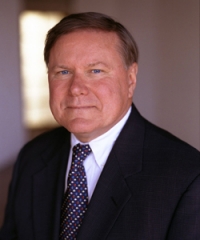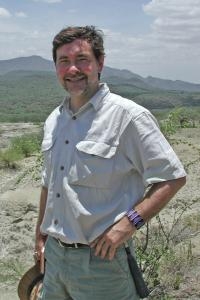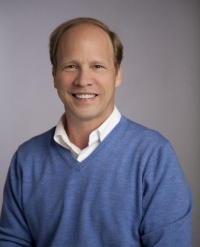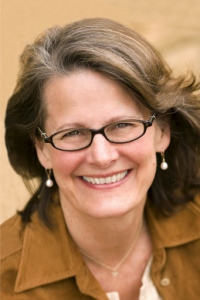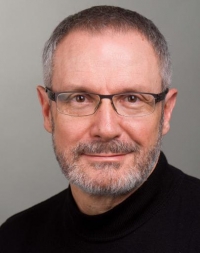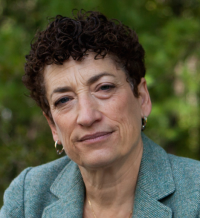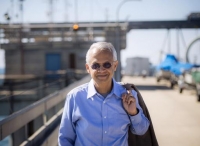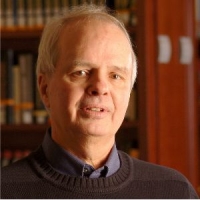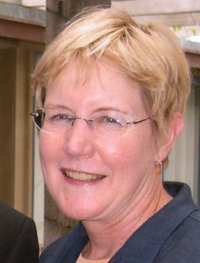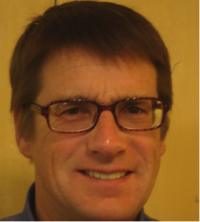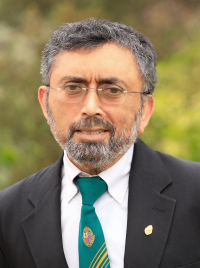Human-Climate Interactions and Evolution: Past and Future
Biographical Sketches: Co-Chairs
Scripps Institution of Oceanography and University of Cambridge
Charles F. Kennel is distinguished professor, vice-chancellor, and director emeritus at the Scripps Institution of Oceanography at UC San Diego. He was educated in astronomy and astrophysics at Harvard and Princeton. He joined UCLA’s Department of Physics and its Institute for Geophysics and Planetary Physics where he pursued research and teaching in theoretical space plasma physics and astrophysics, eventually chairing the Physics Department. From 1994 to 1996, Kennel was Associate Administrator at NASA and leader of its Earth science satellite program. Kennel’s experiences at NASA influenced him to change into Earth science, and he became the ninth Director of Scripps Institution of Oceanography, serving from 1998 to 2006. During winter terms 2007, 2010, 2012, 2014, and 2015-2020, he was a Distinguished Visiting Scholar at Christ’s College, Cambridge.
Smithsonian Institution
Rick Potts is a paleoanthropologist and directs the Smithsonian’s Human Origins Program at the National Museum of Natural History in Washington, DC. After receiving his Ph.D. in biological anthropology at Harvard University in 1982, he taught at Yale before joining the Smithsonian in 1985. Potts’s current research investigates Earth’s environmental dynamics and the processes leading to novel adaptations. His ideas about the significance of environmental instability in human evolution have stimulated wide attention and new research in Earth sciences, paleontology, and experimental and computational biology. Bridging across many research disciplines, Potts’s field projects are located in the East African Rift and in southern and northern China. Potts is curator of the Smithsonian’s Hall of Human Origins, and is author of the companion book What Does It Mean To Be Human? (National Geographic, 2010)
E-mail: pottsr@si.edu
Biographical Sketches: Speakers
Columbia University
Peter B. deMenocal is a professor in the Department of Earth and Environmental Sciences at Columbia University. He uses geochemical analyses of ocean sediments to understand past changes in tropical ocean temperatures and terrestrial climate with a special interest in understanding African paleoclimate change and its influence on human evolution and culture. deMenocal is a fellow of the American Geophysical Union, an AGU Emiliani Lecturer, and a recipient of the Columbia Lenfest Distinguished Faculty Award. He presently leads Columbia’s new Center for Climate & Life.
Stanford University
Collège de France
Professor Jean-Jacques Hublin is Chaire de Paléoanthropologie at the Collège de France and the former Director at the Max Planck Institute of Evolutionary Anthropology in Leipzig (Germany). He has also served as an honorary professor at the University of Leipzig since 2006 and has taught at the University of Leiden (Netherlands) since 2010. Prof. Hublin obtained his PhD in Vertebrate Paleontology and Human Paleontology at the University of Pierre et Marie Curie in Paris (1978), and completed his habilitation in Anthropology at the University of Bordeaux (1991). He first joined the Centre National de la Recherche Scientifique (1981-2000) as a research fellow before continuing as a research director and team leader. Prof. Hublin then joined higher education as a professor at the University of Bordeaux 1 (1999-2004). He has also taught as a visiting professor at the University of California at Berkeley (1992), Harvard University (1997), and Stanford University (1999 and 2011). In 2004, Prof. Hublin joined the Max Planck Institute of Evolutionary Anthropology in Leipzig (Germany) where he created and developed the Department of Human Evolution. He is one of the founders of the European Society for the Study of Human Evolution (ESHE), which connects researchers from European countries. He has had the honor of chairing ESHE since its creation in 2011. Since the 1990s, Prof. Hublin has played a pioneering role in the development of virtual paleoanthropology. In addition to his contributions to the understanding of the African origins of Homo sapiens, he is a well-known specialist on Neandertals. He has played a central role in understanding their origin and evolution and in analyzing the processes of their replacement by Homo sapiens. More recently he has been involved in the study of Denisovans in Russia and China. Finally, Prof. Hublin made a major contribution to the study of the history of paleoanthropology with the publication of a biography of Jacques Boucher de Perthes, French founder of Prehistory. In 1990 Prof. Hublin received the F. Millepierre Prize from the Académie Française; in 2013, the Rudolf-Virchow Prize from the Prinz Maximilian zu Wied Foundation; in 2017, the Royal Wissam al-Kafaa al-Fikria from his Majesty Mohamet VI in person. In 2019, he received the French distinction of Knight of the Legion of Honor.
Harvard University
Scripps Institution of Oceanography, UC San Diego
Veerabhadran Ramanathan is a distinguished professor emeritus of Atmospheric and Climate Sciences at the Scripps Institution of Oceanography, UC San Diego. In 1975, he discovered the super greenhouse effect of Chlorofluorocarbons (also known as 'freons' used as refrigerants). Along with R. Madden, he predicted in 1980 that global warming would be detected by 2000. In 1989, he led a NASA study that used satellite instruments to show that clouds had a large global cooling effect. He led an international field experiment with Paul Crutzen in the 1990s that discovered the widespread Atmospheric Brown Clouds (ABCs) over S. Asia, which have devastating health and climate impacts. He developed light-weight remotely piloted aircraft (RPA) to track pollution plumes from S. Asia, E. Asia, and N. America. His most recent discovery is that mitigation of short-lived climate pollutants (black carbon, methane, ozone, and HFCs) will slow down global warming significantly during this century. The United Nations and 30 countries, including the United States, have now adopted this proposal and a new coalition, called the Climate and Clean Air Coalition, is implementing mitigation actions for short-lived climate pollutants. He advised then-Governor Jerry Brown to pass a bill to drastically reduce emissions of short-lived climate pollutants in California. He founded Project Surya, to mitigate black carbon and other climate-warming emissions from solid biomass cooking in S. Asia and Kenya, and is documenting their effects on public health and the environment. At the University of California (UC), he led the most ambitious effort of his career: Bending the Curve: Climate Change Solutions. The Bending the Curve report, written with fifty leading academics at UC, outlines ten interdisciplinary solutions to the climate problem. He followed this with an undergraduate educational protocol, named Bending the Curve: Climate Solutions, to educate a million climate warriors and climate stewards, which is being taught at many campuses in the US and abroad. He was honored in 2021 with the Blue Planet Prize and in 2018 became the Tang laureate for Sustainability Science. In 2014, Foreign Policy Journal included Ramanathan among the top 100 Thought Leaders of the world. In 2013, he was awarded the top environmental prize from the United Nations, the Champion of Earth for Science and Innovation [www.unep.org/champions]. He has won numerous other prestigious awards, including the Tyler Prize, which is the top environment prize given in the US; the Volvo Prize; the Rossby Prize, and the Zayed Prize. He has been elected to the US National Academy of Sciences, American Philosophical Society, the Pontifical Academy by Pope John Paul II, The World Academy of Sciences, and the Indian National Science Academy. In 2011, he was elected to the Royal Swedish Academy of Sciences, which nominates and awards the Nobel Prizes in the science categories. He is now serving in Pope Francis’ Council for the Pontifical Academy of Sciences. At the Vatican, he co-organized a 2014 historic Vatican meeting on “Sustainable Humanity, Sustainable Nature” of social and natural scientists, philosophers, and policymakers. He briefed Pope Francis in person on the highlights of the meeting. He was the science advisor to Pope Francis' Holy See delegation to the Paris climate summit. He is now leading a Pontifical Academy initiative at the Vatican titled: "Resilience of People and Ecosystems under Climate Stress."
University of Virginia
William Ruddiman is a professor emeritus at the University of Virginia. Ruddiman initially trained as a marine geologist at Williams College and Columbia University and then worked on past climate changes at Columbia’s Lamont-Doherty Earth Observatory and the University of Virginia. He has investigated ice-age cycles in North Atlantic sediments and has examined the global cooling over the last 50 million years. With Maureen Raymo (Columbia University), Ruddiman proposed the uplift of Tibet drove that cooling and created the strong seasonally alternating monsoons that dominate Asia today. Since 'semi-retiring' in 2001, he has explored the climatic role farmers played during the last several thousand years by generating greenhouse gases from agriculture.
UC San Diego
Margaret Schoeninger is Distinguished Professor Emerita of Anthropology at UC San Diego, a Research Archaeologist in the Glenn Black Laboratory of Archaeology at Indiana University, and Emerita Co-Director of CARTA. She has done fieldwork in North America, Mexico, Pakistan, India, Kenya, and Tanzania as well as laboratory research on carbon, nitrogen, and oxygen stable isotope ratio analysis in biological tissues and food component analysis of traditional foods. Her major interest is in the evolution of human diet particularly as it informs our understanding of the appearance and evolution of the human lineage.
Scripps Institution of Oceanography, UC San Diego
Jeff Severinghaus is a professor of geosciences at the Scripps Institution of Oceanography, UC San Diego. He received his Ph.D. from Columbia University’s Lamont-Doherty Earth Observatory in 1995, in isotope geochemistry. Severinghaus is an environmental geochemist working on gases trapped in ice cores, to reconstruct past variations in atmospheric composition and climate. His research often takes him to Antarctica and Greenland. Severinghaus is the 2011 Claire C. Patterson Medalist for environmental geochemistry and is a fellow of the American Geophysical Union.
UC San Diego School of Medicine
Ajit Varki is a Distinguished Professor of Medicine and Cellular & Molecular Medicine, Emeritus Co-Director of CARTA, Emeritus Co-Director of the Glycobiology Research and Training Center at UC San Diego, and Adjunct Professor at the Salk Institute. He received basic training in physiology, medicine, biology, and biochemistry at the Christian Medical College (CMC), Vellore, The University of Nebraska, and Washington University in St. Louis. He also has formal training and board certification in internal medicine, hematology, and oncology. Varki is the executive editor of Essentials of Glycobiology (Cold Spring Harbor Press, 4th Edition, 2022) and is recipient of a MERIT award from the NIH, and an American Cancer Society Faculty Research Award. Honorific elections include the American Academy of Arts and Sciences, the National Academy of Medicine, the American Society for Clinical Investigation, and the Association of American Physicians. He is also recipient of the three highest honors in his field, the Karl Meyer Award of the Society for Glycobiology, the International Glycoconjugate Organization Award and the Rosalind Kornfeld Award for Lifetime Achievement in Glycobiology. He is recognized for creating the first major open access research journal (J. Clin. Invest., 1996) as well as the first major open access textbook (Essentials of Glycobiology, 2009). He was honored with the Old Cottonian of Eminence Award at the 150th Anniversary of Bishop Cotton Boys School, Bangalore, India, (2015) as well as a Distinguished Faculty Medal and Oration at his medical school alma mater, CMC, Vellore. Significant past appointments include: Co-Head, UC San Diego Division of Hematology-Oncology; President of the Society for Glycobiology; Editor-in-Chief of the Journal of Clinical Investigation; Interim Director of the UC San Diego Cancer Center, President of the American Society for Clinical Investigation, and UC San Diego Associate Dean for Physician-Scientist Training. Varki's research interests are focused on a family of cell surface sugars called sialic acids, and their roles in biology, evolution and disease. Currently, active projects are relevant to the roles of sialic acids in microbial infectivity, the regulation of the immune response, the progression and spread of tumors, aging, and unique aspects of human evolution. His group is particularly intrigued to find multiple interrelated differences in sialic acid biology between humans and our closest evolutionary cousins, the "great apes." These differences are a signature of the events that occurred during the last few million years of human evolution, and appear to be relevant to understanding several aspects of the current human condition, both in health and disease. Varki’s book, Denial (Twelve, Hachette Books, 2013), explores a novel "Mind Over Reality Transition” (MORT) theory that denying reality and personal mortality was a key step in allowing the emergence of a full theory of mind, and in the origin of our species.
